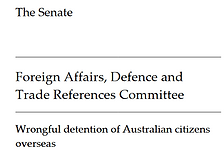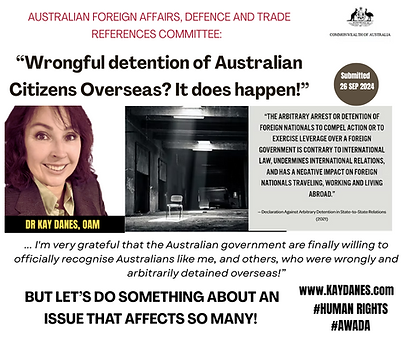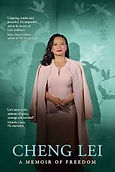
When a loved one is wrongfully detained abroad, families face a complex challenge. They must navigate foreign legal systems, deal with government bureaucracy, and often engage with media. All while worried about their loved one who may be imprisoned due to misunderstandings or as a diplomatic hostage.
AWADA was founded by Australians with first-hand experience of wrongful and arbitrary detention.

Senate Foreign Affairs, Defence and Trade
References Committee
Inquiry into the wrongful detention of Australian citizens overseas.
Dr. Kay Danes, OAM is a member of the
Australian Wrongful and Arbitrary Detention Alliance (AWADA).



Australian Senate Report: November 2024
The Senate Foreign Affairs, Defence and Trade Committee released its report and has not only adopted every single one of the recommendations made in Dr Danes' and AWADA's institutional submission but added to them too, including those of the AWADA member's personal submissions!
The Australian Senate Foreign Affairs, Defence and Trade References Committee final report. (Download)

Public Hearing Program: (Download)
Personal Submission to the Australian Senate:
Dr Kay Danes' submission to the Australian Senate Foreign Affairs, Defence and Trade References Committee 21 AUG 24. On page 17 of this submission is 'The Danes Case Study' (Download)
VIDEO OF TESTIMONY
Senate Foreign Affairs, Defence and Trade References Committee Inquiry: The testimony of Dr Kay Danes, OAM. (Initial audio problems fixed at 2:35min mark).



... I'm very grateful that the Australian government may be finally willing to officially recognise Australians like me and others who were wrongly and arbitrarily detained overseas. I can personally attest to the fact that arbitrary detainment is terrifying. I would urge you to imagine for a moment that you are working overseas when government forces suddenly come into your office, drag you out onto the street, throw you into a car, drive you to a secret location where you are held indefinitely in a tiny cell without food, water or medical care. You're cut off from the rest of the world. You're cut off from anyone who can help you. You're subjected to torture in an attempt to force a false statement to an invented crime, and you are stripped of your dignity and rights. You struggle every day to survive inhumane conditions. This happened to me, and it can certainly happen to you.
Because of this ordeal, I am no longer eligible, along with other people like me, to travel under the Australian visa waiver program, despite my more recent employment where I travelled on a diplomatic passport, having met the criteria for the most stringent government security vetting protocols both foreign and domestic. Instead, I'm forced to live with a label of 'moral turpitude', which is considered to be conduct contrary to community standards of honesty, good morals or justice. And the label persists today, despite the fact that my dedication to international humanitarian service, social justice and human rights is recognised by the Australian Government and international organisations and that I'm also the recipient of the Medal of the Order of Australia, Rotary International awards, Australia Day honours and awards and other notable awards for my service to humanity.
None of these accolades or security clearances can spare me the indignity of what I must face whenever I seek to travel overseas as a common tourist. I therefore appeal for your compassion to advocate for those of us who have faced such injustice that, even with the offering of a presidential pardon, which was the case in our case, there is no relief!" -- Dr Kay Danes, OAM* (26 Sep 2024)
* OAM is the acronym for the Medal of the Order of Australia which is Australia's national system of honours and awards established by Queen Elizabeth II in 1975 to recognize citizens and others for outstanding achievement and service. Appointments to the order are made by the Governor-General of Australia with the approval of the Sovereign.

Hey there, Researchers and Legalusiasts! Get ready to dive into the testimonies from others in this report! Or, on an exhilarating journey exploring the legal intricacies of the Danes Case! (Link).
AWADA
Collaborating with Like-minded Individuals and Groups
Dr Kay Danes collaborates with Dr Kylie Moore-Gilbert, who was wrongfully imprisoned in Iran from 2018-2020 on espionage charges after attending an academic conference. Released in a prisoner swap, she served 2 years and 3 months of a 10-year sentence.
Dr Moore-Gilbert is the founder of AWADA and in 2024 submitted a report to the Australian Senate Inquiry on Wrongful and Arbitrary Detention of Australian Citizens Overseas.
AWADA Organisation Submissions: (Link)
Testimony of Dr Kylie Moore-Gilbert: (https://youtu.be/ecP5pPZ7JIM)




